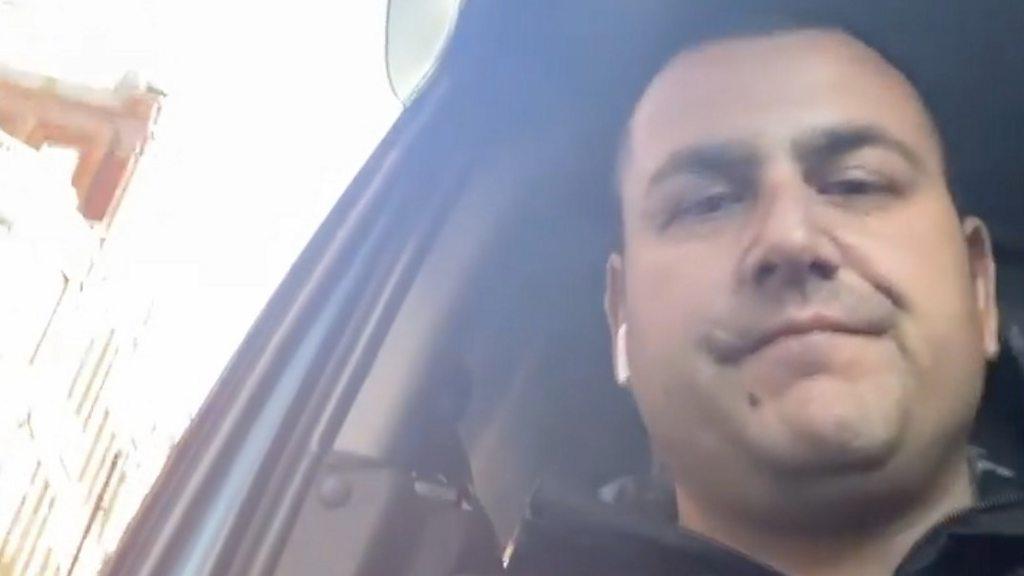Geordie Hospital: Boy, 9, finding his voice after vocal chord surgery
- Published
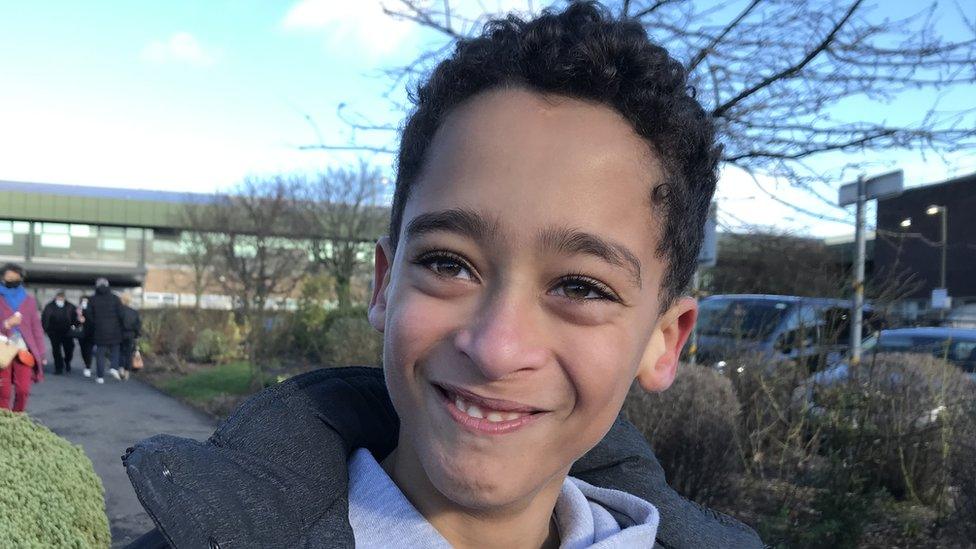
Harrison was born at the age of 22 weeks and six days
A boy whose vocal chords were damaged during life-saving heart surgery has been finding his voice after another operation, his parents said.
Nine-year-old Harrison, from Newcastle, was only the second child to have vocal chord injections at the city's Royal Victoria Infirmary.
Though the effect has been temporary, his mother Nadia said it had helped him make himself heard.
Harrison's vocal surgery featured on Channel 4's Geordie Hospital, external.
Harrison and his twin brother Raif were born at 22 weeks and six days old.
Raif died after three weeks and Harrison spent his first four months being kept alive by machines, his father Martin told the BBC.
He suffered a number of life-threatening infections and, on his way to undergo heart surgery, a heart attack left him dead for seven minutes.
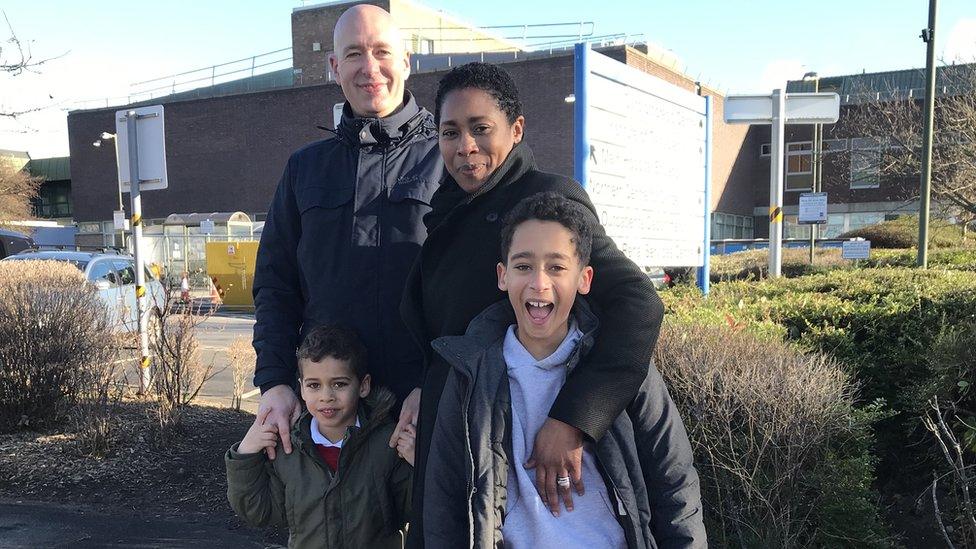
Harrison (pictured with his mum Nadia, dad Martin and little brother Mason) said he was pleased to be heard
The life-saving surgery damaged a nerve which paralysed one of Harrison's vocal chords, a recognised complication of the operation according to ear, nose and throat surgeon Claire McLarnon.
Growing up, Harrison's voice was "weak and husky," Nadia said, and she recalled being "heartbroken" seeing her son get upset when other children could not hear him.
He was mocked and mimicked by children and adults who thought he was "putting on" his voice, his mum said.
"When it came to the opportunity to not have to explain to people anymore and for him to fit in a bit more we thought we would give that a chance," said Nadia.
"We just want him to be heard, to be comfortable and as confident as possible," she said. "It's about having a more natural and maybe less conspicuous sound so he is not having questions about his voice distracting from what he is saying.
"I want his thoughts and feelings to be heard over what he sounds like."
Ms McLarnon carried out Harrison's injection in August, which increased the size of the damaged chord and closed the gap which caused the problem.
She said the procedure was "so important" for children because they could "become quite quiet and not join in on things because they struggle to be heard".
In turn "that can really impact on their confidence", she said.
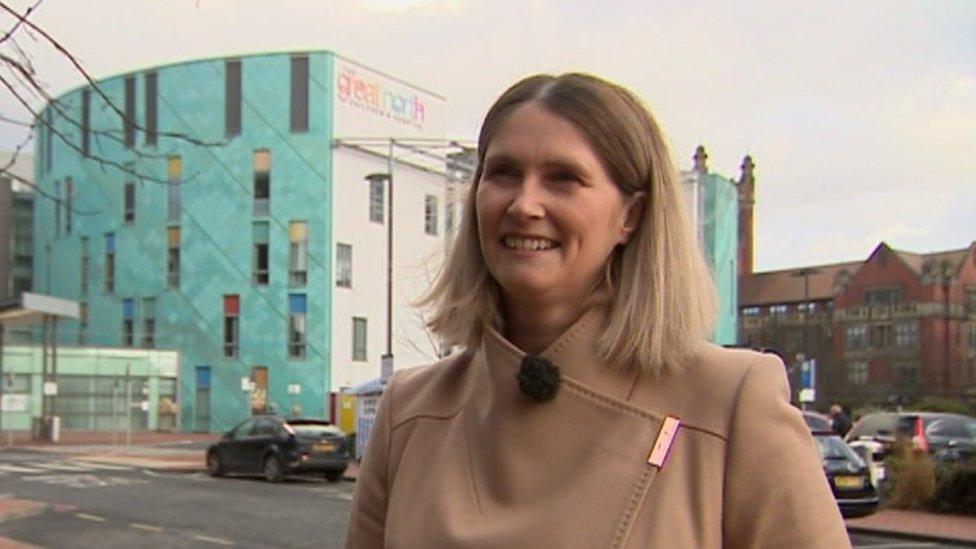
Claire McLarnon carried out the procedure at the Great North Children's Hospital based at Newcastle Royal Victoria Infirmary
"In speech, you need your vocal chords to come together as air comes up through them making them vibrate," Mrs McLarnon said.
"The procedure doesn't return the voice to normal but we hope it gives a stronger and clearer voice."
She said about five adults a month go through her clinic but Harrison was only the second child to have the procedure in Newcastle, although more have had it since he did.
Mrs McLarnon said the long-term effects are "unpredictable" with some people needing regular top ups while others can go 18 months or so between operations.
Nadia said her son's voice was immediately "lighter and more natural sounding" but that faded over the following weeks, although exercises had helped sustain his new voice.
She said as her son grows it will be up to him what steps they take next, which could include replacing the damaged vocal chord altogether.
"He needs to be a bit older to be really involved in the process," Nadia said, adding: "If he is comfortable with the way he sounds I won't push it.
"He seems to take all of this is in his stride."
Harrison recalled he "felt a little bit weird" after the surgery but has come to like the result.
"I want to stick with this voice and try and make it better," he said.

Follow BBC North East & Cumbria on Twitter, external, Facebook, external and Instagram, external. Send your story ideas to northeastandcumbria@bbc.co.uk, external.
Related topics
- Published3 December 2021
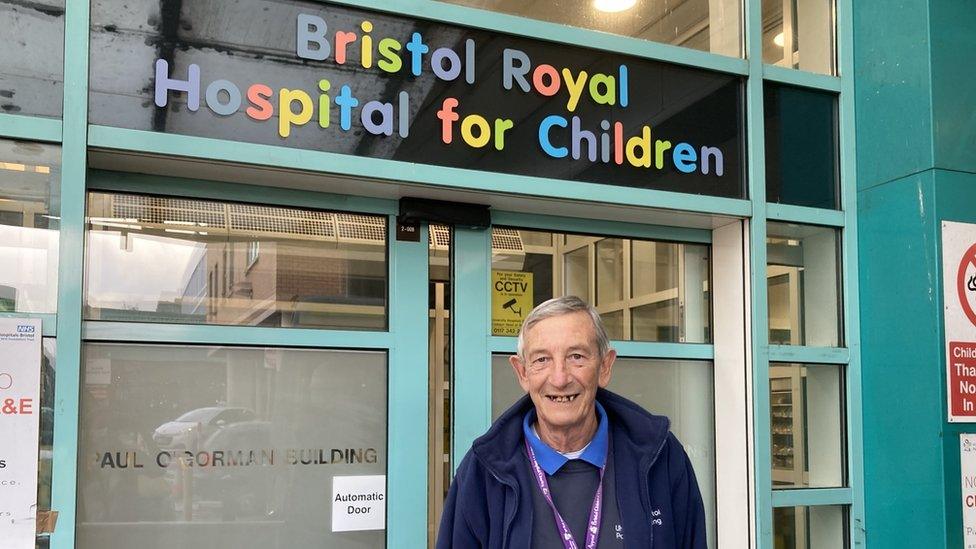
- Published2 December 2021
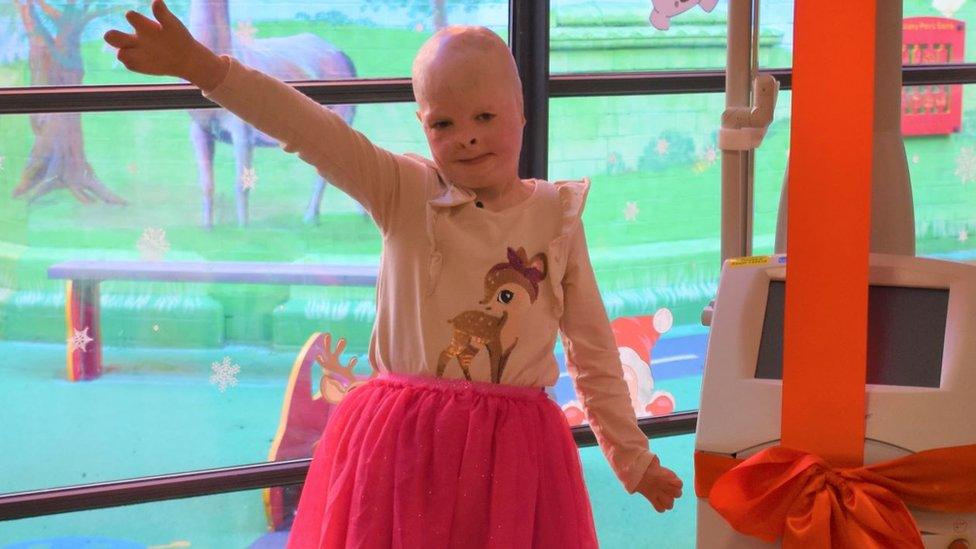
- Published3 November 2021
